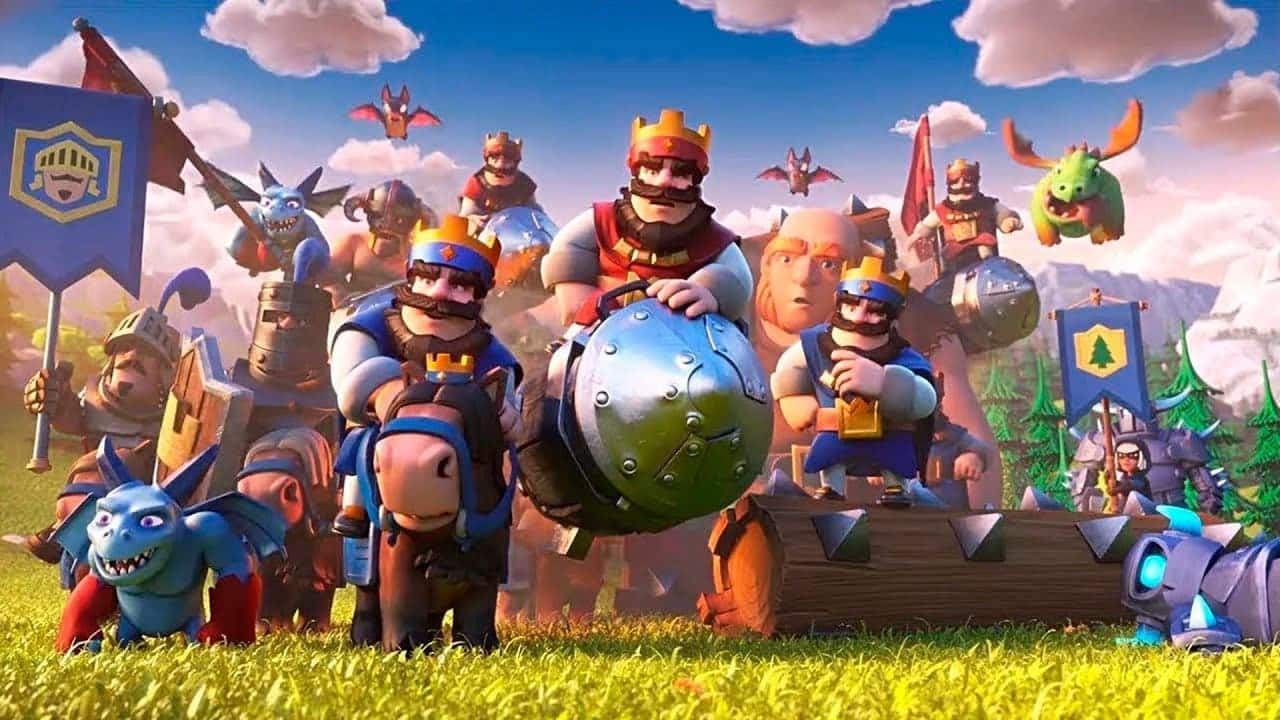
Clash Royale remains a buzzing conversation topic among its loyal fanbase, blending feelings of nostalgia and irritation. Players openly share their mixed emotions as they journey through arenas filled with cherished cards and unrelenting obstacles. From fond memories to annoyance over glitches and aggressive monetization, the community struggles with their connection to a game that has evolved, sometimes negatively. This love-hate bond is evident, stirring both amusement and sadness among users in an open forum where sincerity prevails.
Summary
- Players acknowledge the solid core gameplay but express frustration over balance issues and monetization approaches.
- The emotional investment in Clash Royale is clear, with many feeling trapped between nostalgic love and modern-day irritations.
- The comments reveal a split between competitive players pushing for higher trophies and casual gamers enjoying the ride.
- Several players articulate a desire to experience fun over competitiveness, highlighting personal goals and mental health.
Broken Cards, Broken Hearts
In simpler terms, players’ dissatisfaction with broken cards in Clash Royale isn’t just about how effective they are in gameplay; it shows their emotional attachment to the game. As a player put it, “There’s a great game hidden beneath all the overpowered cards and aggressive monetization.” Many players can relate, suggesting that the aspects of the game they enjoy have turned into sources of irritation. Cards that used to feel well-balanced now cause distress for those climbing the leagues, as another player lamented about the “level 15 mega knights” being a nightmare. The game, once seen as fair and thrilling, now contains elements that make players feel like they’re always fighting an uphill battle. Despite loving the game, players often feel burdened by these problematic cards, much like an unwanted companion they can’t seem to shake off. It’s a bittersweet tale of love and frustration unfolding with each trophy earned.
The Cost of Climbing
One recurring topic in the feedback was the intense pressure experienced when trying to reach higher trophy levels in the game. As players progress, competition becomes more fierce and there’s a growing reliance on card upgrades. A user expressed the struggle saying, “Being at 8500 trophies, the pain is genuine.” While many appreciate the competitive aspect, it can transform into an unyielding chase for perfection that loses its appeal. Some players are starting to question if the effort is worth it. One player hinted, “I think once I reach 9,000 trophies, I’ll be free to enjoy the game,” suggesting a move away from competitive tactics and back to simply playing for pleasure. This self-examination reveals a paradoxical insight: while players should remember that games are meant to provide entertainment, not just climb the ranks.
The Struggle Between Casual and Competitive Play
The community is filled with people who have varying gaming styles, from intense competitors to casual enthusiasts. It’s clear there are two distinct groups based on comments across the spectrum. A comment summed up this divide perfectly: “I only play this game because I don’t know what else to do on mobile. It hasn’t been good for years.” This comment illustrates loyalty amid decreasing pleasure. The game becomes a complicated mix of nostalgia and irritation, much like an old friend who oversteps boundaries. Some players are still hooked on the leaderboard, while others want to break away but feel tied to the genre out of habit. This oscillation between competitiveness and longing for freedom results in a humorous yet poignant predicament.
Understanding the Emotional Investment
Clash Royale stands out due to its blend of emotional engagement and strategic play, which keeps players hooked. They often find themselves reminiscing about past victories, longing for the excitement of the next battle. The community’s comments hint at a desire to recapture the magic that first attracted them, a time when they could enjoy the suspense of a good match without the current pressures. One player admitted, “me too. guilty,” reflecting the sentiments many harbor but may be reluctant to openly express. The game’s emotional connection can make it both a sanctuary and a source of stress, causing players to cherish and resent their time spent on it simultaneously. The boundary between affection and frustration is more blurred than ever, leading some to avoid community conversations while still feeling inexplicably drawn back to the game that significantly impacted their mobile gaming experience.
In this tumultuous journey through the world of Clash Royale, it’s evident that despite the whirlwind of feelings – affection, nostalgia, annoyance, and aspirations for better gameplay – the community shares a common bond. This bond extends beyond their connection to the game itself, reaching into the camaraderie they build with one another as they trade tales, confessions, and visions of a more balanced gaming environment. It’s undeniably a rollercoaster ride, and players eagerly brace themselves for the next level, aware that they can’t seem to escape the love-hate relationship they have with Clash Royale. Despite its flaws such as technical glitches and monetization issues, the game maintains a unique, albeit intricate, place in the hearts (and smartphones) of its devoted players.
Read More
- Clash Royale Best Boss Bandit Champion decks
- Vampire’s Fall 2 redeem codes and how to use them (June 2025)
- Mobile Legends January 2026 Leaks: Upcoming new skins, heroes, events and more
- World Eternal Online promo codes and how to use them (September 2025)
- How to find the Roaming Oak Tree in Heartopia
- Clash Royale Season 79 “Fire and Ice” January 2026 Update and Balance Changes
- Best Arena 9 Decks in Clast Royale
- Clash Royale Furnace Evolution best decks guide
- Best Hero Card Decks in Clash Royale
- FC Mobile 26: EA opens voting for its official Team of the Year (TOTY)
2025-06-10 09:51